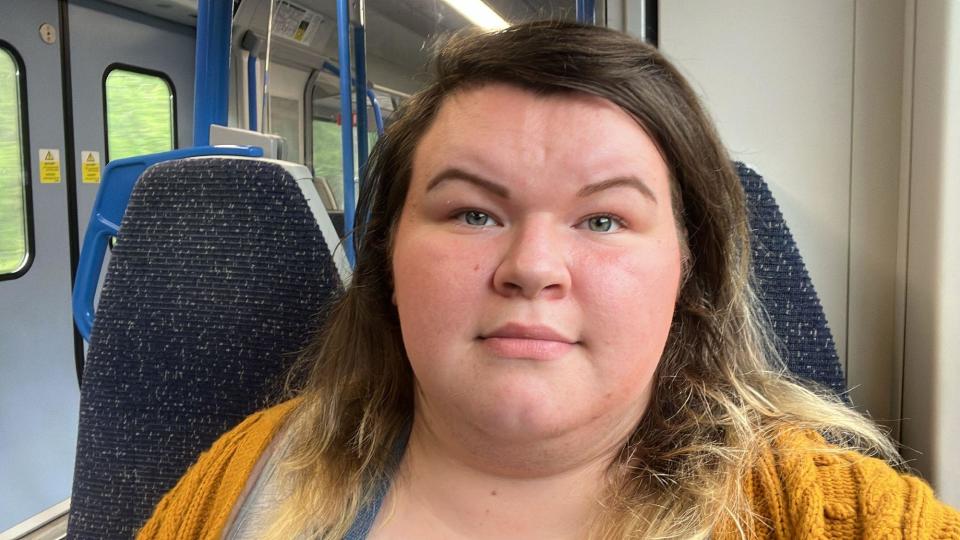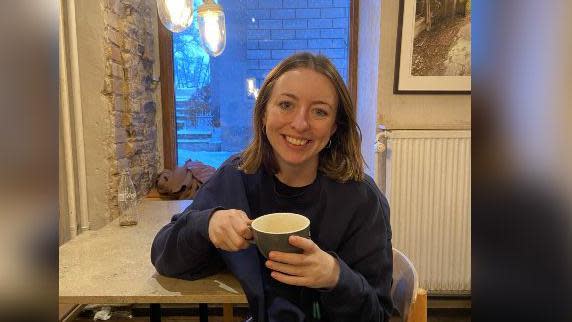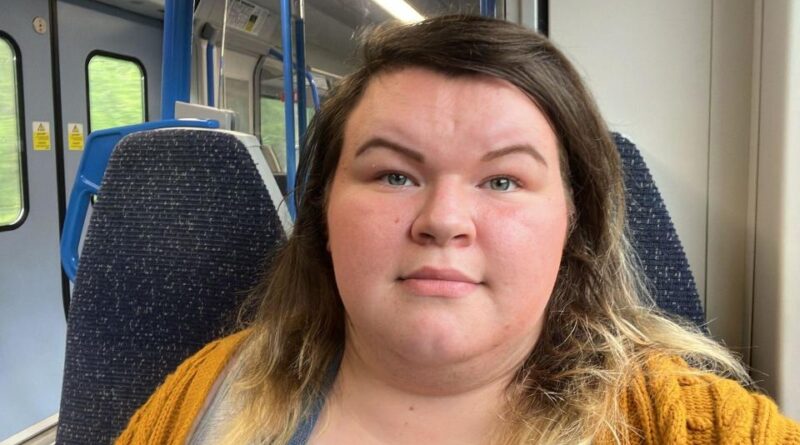‘The only hospital bed was 248 kilometers from home’
Many people with mental health problems are sent away from home for inpatient treatment, although officials have previously pledged to end the practice by 2021.
Experts say these long placements can lead to long and ineffective stays in mental health facilities.
NHS data shows the trend almost halved between 2018-19 and 2022-23 but rose 25% in 2023-24.
The government said it would fix a “broken system”.
‘Belittling’
Rachel spent years in and out of hospital suffering from depression and post-traumatic stress disorder. When he was separated in 2021, the nearest bed available was 248 miles (399km) away.
He was moved three more times, each four to five hours away from home.
He said: “It feels depressing that you are just a number that they take and put somewhere in the country.
Even though she felt alone, Rachel told her family not to waste money on traveling if she had visitors for a while. He said: “I felt very guilty.
Rachel says the care she received saved her life, but she wonders if she could have recovered sooner near home.
In April 2024, he was released. After nearly four months out of the hospital, Rachel said it has been difficult at times but she has enjoyed spending time with loved ones and going on family vacations.
He said: “I am doing very well. “I live a life that I now see as good.”
What is misplacement?
An inappropriate out-of-area placement (OAP) occurs when a person is admitted to an inpatient ward outside of their area because there is no bed available in that area.
Dr Lade Smith, president of the Royal College of Psychiatrists, says such placement can delay recovery.
He said that when people leave the hospital, they may have less support because they could not maintain relationships with friends and family.
In 2016, the government said it wanted to phase out OAPs by 2020-2021. Their use fell in subsequent years, but rose by 25% in 2023-24 to 5,500.
Dr Smith said it showed “people have taken their eye off the ball”. He said that financial and housing pressures and the epidemic had led to an increase in people needing care, although “there were already problems”.
An NHS spokeswoman said a limited number of beds were available as some patients ready to leave hospital were still waiting for housing support.
They said: “It is not acceptable for patients to be treated away from home. “NHS England is committed to working to eradicate OAPs and is supporting initiatives across the country to achieve this goal.”
Where were the biggest situations?
The Greater Manchester area had the biggest increase in the year to March 2024.
Dr Clair Lake, deputy medical director of NHS Greater Manchester, said they wanted everyone in the area to “have access to mental health care close to home”.
He called reducing OAPs a priority and said that although there had been a “significant reduction” in recent months, there was more to be done.
He said to ensure that people can get the right care locally, the focus is on supporting mental health, improving community services and strengthening response services to avoid being admitted there. appropriate.
The work involved the wider NHS, local authorities, housing providers and the voluntary sector, he added.
‘like a cage’


Nikki, now 27, was hospitalized far away from home after suffering and attempting suicide at the age of 14.
He said being sent to a hospital 28 kilometers (45km) from his home in London was very stressful. “It was like a big cage. They said, ‘Your father will not be with you’.”
In 2014, he spent five weeks as an OAP. He said: “It was very difficult for my father and my friends to get there, because there was nothing left.”
He described this as an extra expense when money was tight, which caused stress in his family.
Nikki said her father felt guilty for not being able to visit more, adding: “He didn’t have the support to get there. I felt eaten up. I’m really lonely and isolated, I felt like I was weird… like, what’s wrong with me?”
-
If you are affected by the content in this story, help and support is available at BBC Action Line.
‘Eye watering costs’
OAPs cost NHS England £164m in 2023-24, up £49m (43%) from 2022-23.
Dr Smith described the amount spent as “eye-watering” and said the overuse of private beds was the cause.


Mental health charity SANE is seeking strong emotional and financial support for families affected by OAPs.
Founder and CEO Marjorie Wallace said: “We’re asking the government to ensure that every trust has enough beds to accommodate people in crisis, so they don’t have to send them out into the countryside like parcels. unwanted.”
He added that OAPs can deal with the current crisis “but it doesn’t make economic sense, let alone psychologically”.


Gemma Byrne, director of strategy and campaigns for mental health charity Mind, said mental health and social services were “completely overstretched and underfunded”.
He said the services needed investment “so that people don’t get to the point where they are so unwell that they have to be in hospital”.
A spokesman for the Department of Health and Social Care said the government would “fix the broken system”.
“We will go further than ever to put mental health first, and that starts with improving the Mental Health Act, helping people get back on their feet and ensuring that care is right , it is equal and compassionate,” they said.
More information about Lauren Woodhead
![]()
#hospital #bed #kilometers #home
